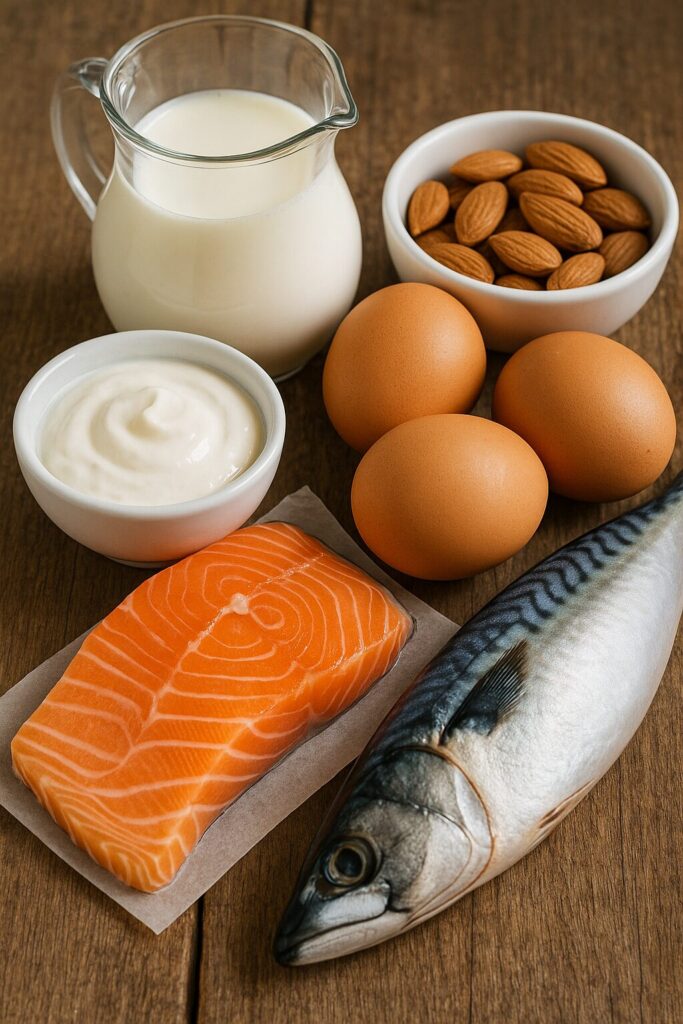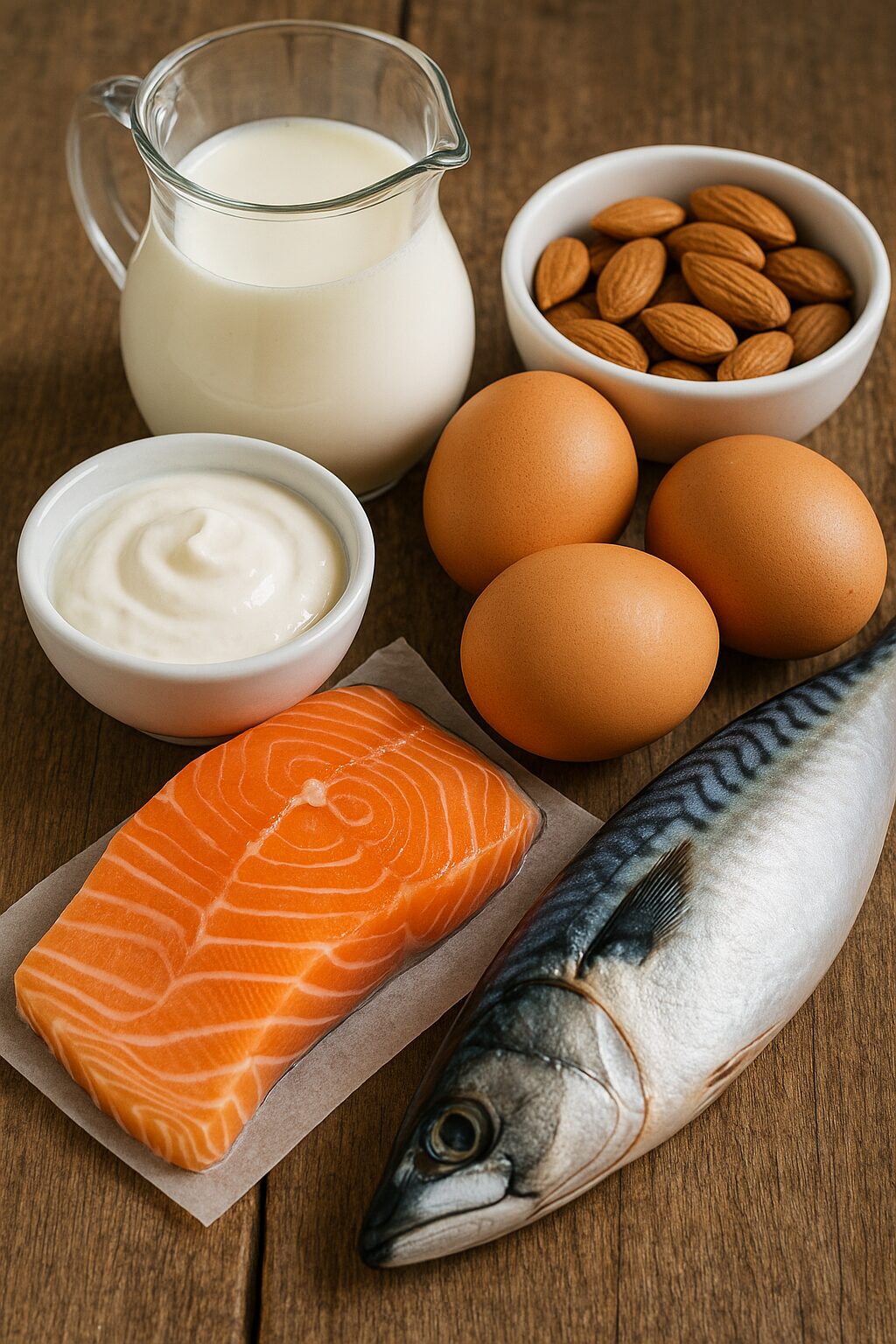When people think about vitamins, they often mention vitamin C for immunity or vitamin D for bones. Yet, vitamin B2 — also known as riboflavin — plays a crucial role in keeping our body energized, supporting healthy skin, and protecting the nervous system. Unlike some other vitamins, riboflavin cannot be stored in large amounts, which means we need a steady daily intake through food. In this article, we will explore the top 10 foods that are naturally rich in vitamin B2 and how they can benefit your health.

1. Milk
Milk is one of the most accessible and reliable sources of riboflavin. A single glass provides a significant portion of the daily requirement, along with protein and calcium. Drinking fortified milk can help boost both bone strength and energy metabolism, making it a great daily habit for children and adults alike.
2. Yogurt
Yogurt offers riboflavin along with probiotics that support gut health. It’s a perfect breakfast or snack option. Adding fruits like berries can enhance its antioxidant profile, providing a double benefit for overall well-being.
3. Cheese
Cheese, particularly cheddar and Swiss, contains vitamin B2 in moderate amounts. Combined with whole-grain bread or vegetables, cheese can be both delicious and nutritious. Since it is calorie-dense, portion control is recommended.
4. Eggs
Eggs are a complete protein food that also supplies riboflavin, mainly in the egg white. Incorporating eggs into breakfast, salads, or stir-fries ensures you get both energy and essential vitamins for the day.
5. Almonds
Almonds are not only rich in healthy fats and vitamin E but also provide riboflavin. A small handful makes a powerful snack that supports brain function and helps reduce fatigue.
6. Spinach
Spinach is well-known as a nutrient powerhouse. Besides iron and vitamin A, it provides riboflavin that helps in red blood cell production and energy metabolism. Lightly steaming spinach preserves more nutrients compared to boiling.
7. Mushrooms
Portobello and button mushrooms are excellent plant-based sources of riboflavin. They are versatile in cooking — grilled, sautéed, or added to soups. For vegetarians, mushrooms can be a valuable addition to maintain optimal vitamin B2 intake.
8. Liver
Animal liver, such as beef liver, is among the most concentrated natural sources of riboflavin. While its taste is not for everyone, small servings occasionally can provide a significant boost to vitamin B2 levels. Moderation is key due to its high vitamin content.
9. Salmon
Salmon delivers not only omega-3 fatty acids but also riboflavin, making it a heart-healthy and energy-boosting food. Baking or grilling salmon retains nutrients while providing a satisfying and flavorful meal.
10. Chicken
Chicken, especially lean breast meat, contains riboflavin along with protein. It’s a staple in many diets and can be prepared in various healthy ways. Combining chicken with vegetables and whole grains creates a balanced meal rich in essential nutrients.
🙂
Vitamin B2 may not be as famous as other vitamins, but it is fundamental for turning food into energy, supporting nerve function, and maintaining skin health. By including a mix of dairy, plant-based foods, nuts, and lean meats, you can easily meet your daily riboflavin needs. Instead of depending only on supplements, a food-first approach ensures you receive riboflavin along with other synergistic nutrients for long-term vitality.
Sources
– National Institutes of Health (NIH): Riboflavin Fact Sheet
– World Health Organization (WHO): Micronutrients and Health
– American Journal of Clinical Nutrition: Role of B vitamins in metabolism
Disclaimer
This article is intended for educational purposes only and is not a substitute for professional medical advice. Nutrient requirements vary by individual. Please consult a healthcare provider for personalized recommendations.
